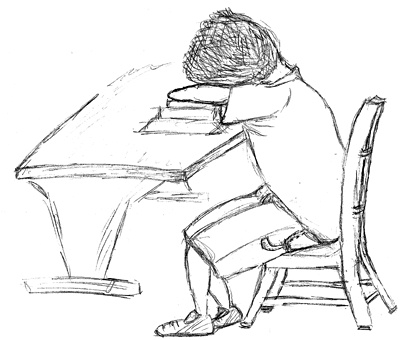All Nonfiction
- Bullying
- Books
- Academic
- Author Interviews
- Celebrity interviews
- College Articles
- College Essays
- Educator of the Year
- Heroes
- Interviews
- Memoir
- Personal Experience
- Sports
- Travel & Culture
All Opinions
- Bullying
- Current Events / Politics
- Discrimination
- Drugs / Alcohol / Smoking
- Entertainment / Celebrities
- Environment
- Love / Relationships
- Movies / Music / TV
- Pop Culture / Trends
- School / College
- Social Issues / Civics
- Spirituality / Religion
- Sports / Hobbies
All Hot Topics
- Bullying
- Community Service
- Environment
- Health
- Letters to the Editor
- Pride & Prejudice
- What Matters
- Back
Summer Guide
- Program Links
- Program Reviews
- Back
College Guide
- College Links
- College Reviews
- College Essays
- College Articles
- Back
Procrastination and the relationship that has with COVID-19
As a consequence of the stringent restrictions associated with COVID-19 and uncertainty that comes with it, the rates of anxiety and depression have been raising exponentially, making us more vulnerable and susceptible to one of the more harmful human tendencies, procrastination
This habit is caused by a battle between an ancient part of the brain, called the limbic system, which plays roles in our more fundamental survival and pleasure-seeking, and a relatively younger part known as the prefrontal cortex. This is responsible for more complex behaviors such as planning for the future.
When strong emotions such anxiety and fear become overwhelming, the limbic system will seek pleasure by putting things off. This is when procrastination takes place.
For example, a triggered for procrastination is quarantine since there is no separation in our environment, we start to confuse our workspaces and our leisure places. This leads us into two types of procrastination. One is the bedtime procrastination, in which people, especially women, put off going to sleep in leisure time. The other is productive procrastination, where people delay doing important tasks by taking on non priority tasks.
To avoid putting things off and overcome negative emotions, that will drive us to procrastination, studies have shown that by practicing mindfulness and self-compassion are effective in keeping this enemies away from us.
bibliography: nationalgeographic.com/science/article/are-you-procrastinating-more-blame-the-pandemic?loggedin=true

Similar Articles
JOIN THE DISCUSSION
This article has 0 comments.
